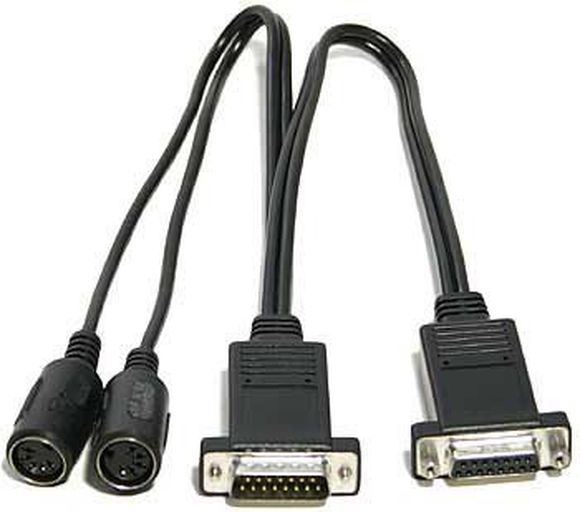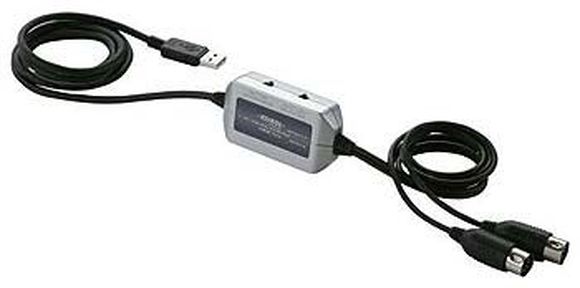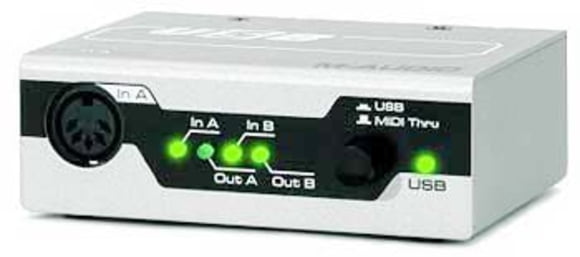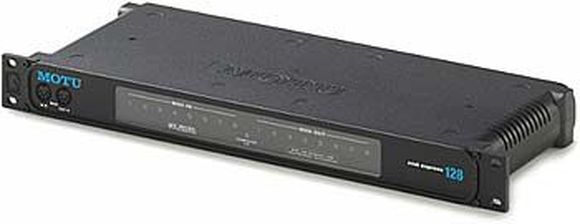8. Popular Models
A wide range of MIDI interfaces are still available, in particular from M-Audio, Edirol and MOTU, although there are other manufacturers. Here are some of the more popular options:
Joystick to MIDI Adapter
An old favourite, and often the simplest way to MIDI-enable your computer - the adapter fits to your soundcards joystick port and off you go. However, these days joysticks tend to be USB, so the joystick port is becoming rather thin on the ground, but if you have one, then for the price of a cable youre up and running with a single MIDI In and Out.
Edirol UM-1EX
A simple USB MIDI interface featuring a single In/Out. Ideal for a laptop, or if you just need to attach a single keyboard and/or sound module. If you have a large workstation synth for instance, you could connect its In and Out ports to the computer and do your sequencing in software, while still using all the hardware sounds.
M-Audio MIDISport 2x2
M-Audio produce a range of MIDISports from 1 to 4 ports, the 2x2 being the most popular, as it gives you that additional port for running both a keyboard and a controller, or accessing an external synth and a sampler.
MOTU MIDI Express 128
Mark Of The Unicorn (MOTU) started life building MIDI interfaces and have continued producing some of the most professional units on the market. Their models range from 2 to 8 ports, and they also have products with digital synchronisation options. The MIDI Express 128 is their most straightforward 8 port interface, which offers 8 MIDI In and 8 MIDI Out ports more than enough for most studios.
MOTU MIDI Timepiece AV
The flagship of the MOTU range and the ultimate MIDI Interface. It additionally provides a host of advanced features such as being able to operate as a standalone MIDI patch bay, as well as ADAT and Wordclock sync. It can be networked with other Timepieces.







